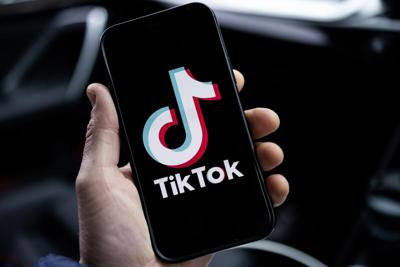OTTAWA— TikTok is slamming Ottawa’s decision to ban its app from government devices, arguing that the company has been “dragged” into a geopolitical firestorm that has seen other jurisdictions clamp down on the app and allegations of Chinese interference in Canadian elections.
Since Tuesday, the video-sharing app has been blocked from all government-issued mobile devices, after Canada’s chief information officer, Catherine Luelo, ruled that the privacy and security risks associated with TikTok were “unacceptable.” The announcement prompted a flurry of reactions from provincial and municipal governments, which throughout the week decided to follow suit or consider similar bans.
But the company says it found the timing of the announcement “curious,” given that it followed the European Commission’s decision to ban the app from staff devices, along with similar moves across the border to scrub the app from government devices for those working for federal agencies and more than half of U.S. states.
“It points to it being a political decision and not, as was asserted, one that was based on privacy and security risks. There was nothing that changed recently, or was revealed about TikTok, that would have led to this being a sudden announcement on a Monday morning,” said Steve de Eyre, TikTok Canada’s director of public policy and government affairs.
At issue is the fact that TikTok’s parent company, Bytedance, is headquartered in Beijing, prompting alarm from Canadian, U.S. and European officials, who are concerned the Chinese government could compel companies to hand over user data for intelligence purposes.
That made the timing of this week’s announcement all the more interesting, de Eyre told the Star, because of recent allegations that Beijing interfered in Canada’s 2019 and 2021 elections.
“That’s just an unrelated story, but I think we’re being dragged into that because of geopolitical reasons,” he said.
Treasury Board President Mona Fortier has only said the decision to block the app from government devices — and prevent it from being downloaded in the future — is a precautionary measure, “given concerns about the legal regime that governs the information collected from mobile devices, and is in line with the approach of our international partners.”
But de Eyre wonders how Luelo’s office arrived at its conclusion when he says no one from the federal government ever contacted TikTok to discuss its privacy and security practices.
“We also weren’t asked any questions, or asked for any information, or given an opportunity to refute any of the allegations that are being made. It’s also not clear to us what information this was based on,” de Eyre said.
Asked repeatedly by the Star to share the chief information officer’s review, explain what information led to its conclusions, and whether Ottawa had discussed any of its concerns with the company, Treasury Board declined to answer and instead reiterated its Monday statement.
On Wednesday, TikTok chief operating officer V Pappas asked Luelo’s office for a meeting between Canadian and TikTok officials to review the company’s practices. De Eyre confirmed to the Star that such a meeting is set to take place soon.
“I think this decision lacked transparency, accountability, due process,” de Eyre said. “We have to differentiate between political decisions and decisions that are based on security and privacy and those shouldn’t be conflated.”
De Eyre said if Ottawa is so worried about TikTok, it should instead move forward with Bill C-27, which is set to return to the House of Commons next week and would, in part, outline a new privacy law regime that could alter the way TikTok and other platforms operate.
He also rejected concerns that Chinese national intelligence law would force companies to hand over personal data.
“We don’t believe these laws are directed at us because we don’t store user data in China. Canadian user data is stored in the U.S. and in Singapore,” de Eyre said, adding that based on the company’s publicly available transparency reports, there have been no government requests for data stemming from China.
While a report from the University of Toronto’s found that “there is no overt data transmission to the Chinese government by TikTok,” other researchers have found cause for concern.
Last year, Australian cybersecurity organization found that the app “does not prioritize privacy,” that “permissions and device information collection are overly intrusive,” and that there is evidence of “excessive data harvesting.” It also found that some versions of the app have connections to infrastructure in mainland China.
Error! Sorry, there was an error processing your request.
There was a problem with the recaptcha. Please try again.
You may unsubscribe at any time. By signing up, you agree to our and . This site is protected by reCAPTCHA and the Google and apply.
Want more of the latest from us? Sign up for more at our newsletter page.



























To join the conversation set a first and last name in your user profile.
Sign in or register for free to join the Conversation